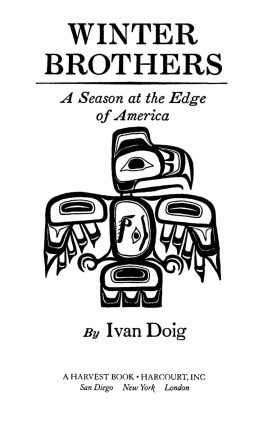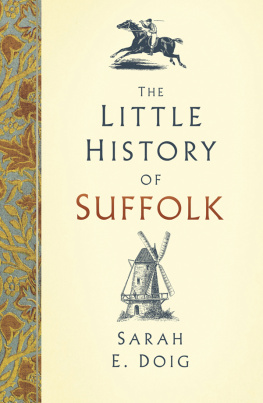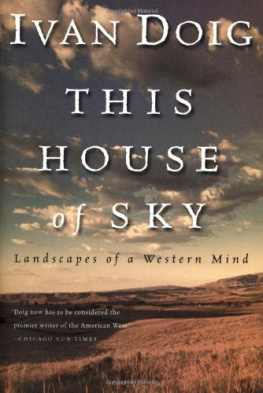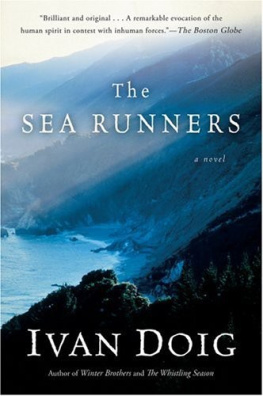Ivan Doig - The Sea Runners
Here you can read online Ivan Doig - The Sea Runners full text of the book (entire story) in english for free. Download pdf and epub, get meaning, cover and reviews about this ebook. year: 2006, publisher: Harcourt, genre: History. Description of the work, (preface) as well as reviews are available. Best literature library LitArk.com created for fans of good reading and offers a wide selection of genres:
Romance novel
Science fiction
Adventure
Detective
Science
History
Home and family
Prose
Art
Politics
Computer
Non-fiction
Religion
Business
Children
Humor
Choose a favorite category and find really read worthwhile books. Enjoy immersion in the world of imagination, feel the emotions of the characters or learn something new for yourself, make an fascinating discovery.
The Sea Runners: summary, description and annotation
We offer to read an annotation, description, summary or preface (depends on what the author of the book "The Sea Runners" wrote himself). If you haven't found the necessary information about the book — write in the comments, we will try to find it.
The Sea Runners — read online for free the complete book (whole text) full work
Below is the text of the book, divided by pages. System saving the place of the last page read, allows you to conveniently read the book "The Sea Runners" online for free, without having to search again every time where you left off. Put a bookmark, and you can go to the page where you finished reading at any time.
Font size:
Interval:
Bookmark:
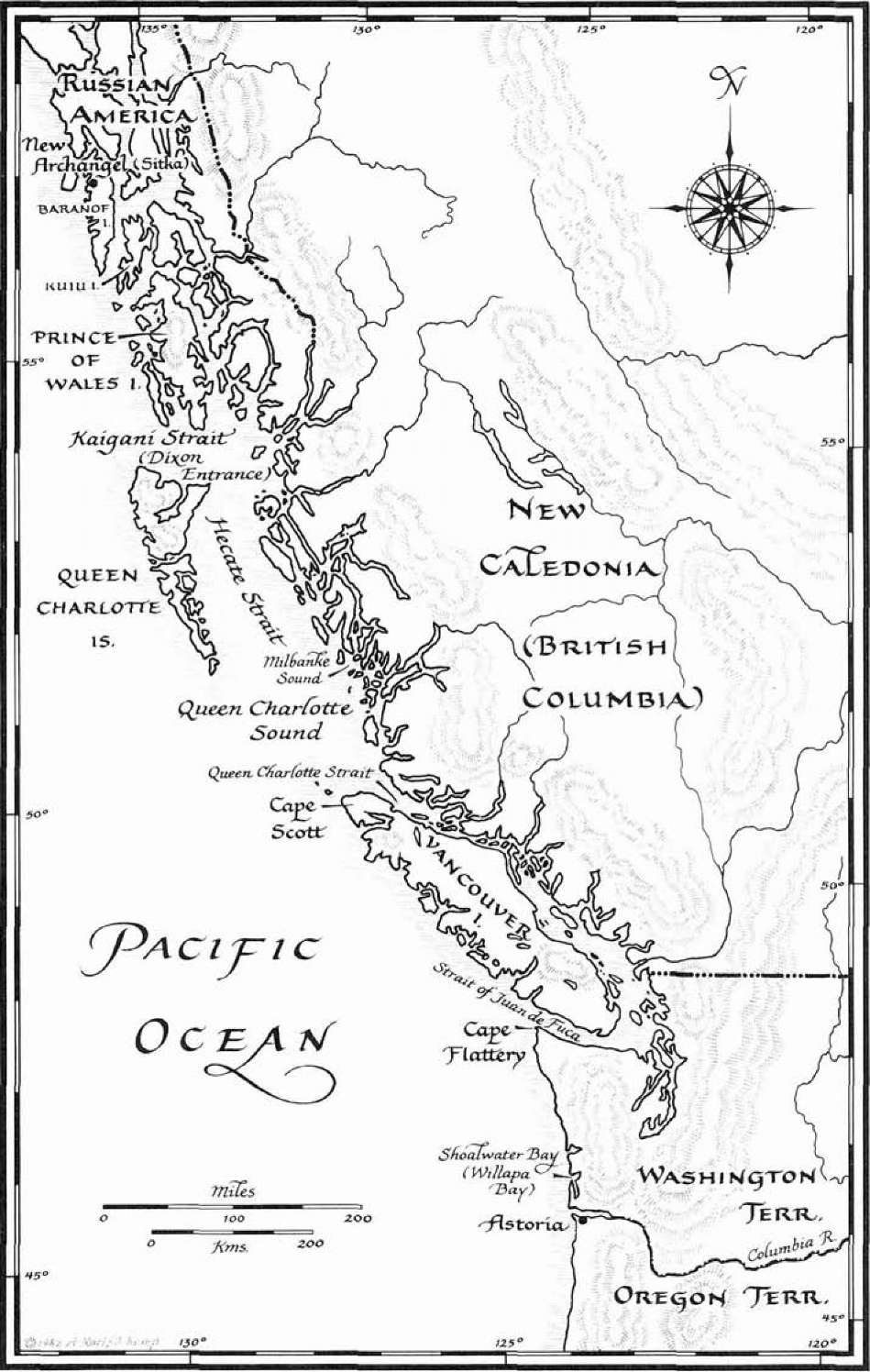
A HARVEST BOOK
HARCOURT, INC.
Orlando Austin New York
San Diego Toronto London
Copyright 1982 by Ivan Doig
All rights reserved. No part of this publication may be
reproduced or transmitted in any form or by any means,
electronic or mechanical, including photocopy, recording,
or any information storage and retrieval system,
without permission in writing from the publisher.
Requests for permission to make copies of any part of
the work should be mailed to the following address:
Permissions Department, Harcourt, Inc.,
6277 Sea Harbor Drive, Orlando, Florida 32887-6777.
www.HarcourtBooks.com
First published by Atheneum in 1982
Library of Congress Cataloging-in-Publication Data
Doig, Ivan
The sea runners/Ivan Doig.1st Harvest ed.
p. cm.
"A Harvest book."
1. Indentured servantsFiction. 2. EscapesFiction.
3. AlaskaFiction. I. Title.
PS3554.O415S4 2006
813'.54dc22 2005037024
ISBN-13: 978-0-15-603102-8 ISBN-10: 0-15-603102-7
Printed in the United States of America
First Harvest edition 2006
G I K J H F
TO JOHN RODEN
for splicing the lifeline at Ellen Creek
The old ocean at the land's foot, the vast
Gray extension beyond the long white violence ..
And the gray air haunted with hawks:
This place is the noblest thing I have ever seen.
Robinson Jeffers, The Place for No Story
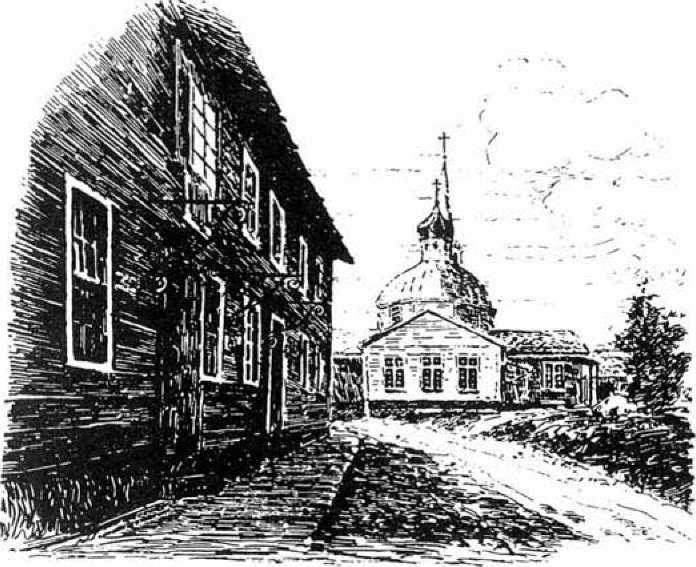
A HIGH-NOSED cedar canoe, nimble as a sea-bird, atop a tumbling white ridge of ocean.
Carried nearer and nearer by the water's determined sweep, the craft sleds across the curling crest of wave and begins to glide the surf toward the dark frame of this scene, a shore of black spruce forest. On a modern chart of the long, crumbled coastline south from the Gulf of Alaska toward the Strait of Juan de Fuca this particular landfall is written in as Arisankhana Island. None of the four voyagers bobbing to its shore here in a winter dusk of the year 1853, however, knows anything of this name, nor would it matter to their prospect if any did.
Now the canoemen as they alight. Karlsson and Melander and Wennberg and Braaf, More days than they wish to count they have been together in the slender canoe, dodging from one of this coast's constant humps of forest-and-rock to the next. Each man of them afraid a number of times in these days; brave almost as often. Here at Arisankhana they land wetly, heft their slim but laden craft across the gravel beach into hiding within the salal and salmonberry.
"Hope to Christ"the broad man, Wennberg, this"this's drier than last night's."
"Oil, aye, and God send you wine and figs too, Wennberg ?"
"Ought'vc left him, Melander." The one named Braaf, here. "Ought've left him cooped in New Archangel."
The slender one of them, called Karlsson, stays silent.
They turn away to the abrupt timber. As the trees sieve them from sight, another white wave replaces the rolling hill of water by which the four were borne to this shore where they are selecting their night's shelter, and where one of them is to die.
Their escape from New Archangel was of Melander's making. In any day's comings and goings at that far-north assemblage of hewn logs and Russian tenacity, Melander you would have spied early. Toplofty man with lanks of anus and high hips, so that he seemed to be ail long sections and hinges. His line of jaw ran on as well, and so too his forehead; in the extent of Melander only the bright blue eyes and stub nose and short mouth neighbored closely, a sudden alert center of face amid the jaw-and-forehead expanse as if peering in wily surprise out of the hole of a tree trunk.
"A strong right arm is the lever of life, these Russians say. You'd think by chance the Castle crowd might once put the lever to something other than hoisting a glass of champagne, aye?" Early on, too, you would have come to know the jointed talk of the man, this Melander habit of interrupting himself to affirm whether he dared go on with so mesmerizing a line of conversation. All such reluctance to dazzle further notwithstanding, thirty-one times out of thirty Melander could be counted on for continuation. "But 110, lie around up there like seals they all do, yip-yipping down at the rest of us.... Luck for them that we were born, else they'd starve to death figuring out right hoot from left foot.... To be Russian is to be a toothache to the world, aye?"
Horn on the isle of Gotland and thinking of himself as a Swede, Melander actually numbered in the landless nationality, that of the sea. Beyond memory his people on Gotland were fisherfolk, generation upon generation automatically capable with their reaping nets as if having happened into the world with hands shaped only for that task. So it came as a startling flex of independence when Melander, himself beginning to resemble a sizable height of pine spar, went off from his village of Slite to tall-masted vessels. Aboard ship he proved rapidly apt, the type of sea roamer of whom it was appraised that each drop of his blood was black Stockholm tar and his every hair a rope yarn. Ten or so years of sailing the Baltic and the North Sea bettered his position almost voyage by voyage, and then"Had I been born with brass on my corners, you'd one day be calling me Admiral," Melander half-joked to his deckhands the day he was made first mate.
Just such a billet, second in command of a schooner bearing twenty fresh seven-year men from Stockholm in the spring of 1851, was the one that shunted Melander to Alaska. Russian America, that world-topping wilderness yet was known as, its wholesale purchase by the United Statesand consequent rechristening of New Archangel to what the coast's natives knew this vital speck of site as, Sitkawaiting a decade and a half into the future.
Although he had no farthest thought of new endeavor at the onset of that voyage, a pair of outlooks swerved Melander into staying on at New Archangel. The first loomed square aheadthe eleven-month expanse of return voyage in the company of the schooner's captain, a fidgety little circle-faced Finn who was veteran in the Baltic trade but had proved to be quite literally out of his depth on the ocean. The other lay sidewise to Mister First Mate Melander's scrutiny, berthed there against a backdrop of Alaskan forest the spring morning when he reached final exasperation with his dim captain: The Russian-American Company's steamship, the Emperor ANicholas I.
In a time and place earlier, Melander would have been the fellow you wanted to set a spire on a cathedral ; in a later, to oversee a fleet of mail planes. But on an April clay in 1851 at one of the rim ends of the known world, what sat at hand was this squatty wonder of self-propulsion. This, and a proclaimed shortage of gifted seamen in these northern Pacific waters which the fur-trading Russians historically had navigated, pro-Nicholas and pre-Melander, like men lurching across ice.
"If the wind were clever enough," Melander observed to the baffled Finnish skipper upon taking leave of him, "it ought to snuff out these steam snorters before they get a start, aye?"
Melander maybe under different policy would have gone on to earn his way up the ranks of the Russian-American Company at New Archangel like a lithe boy up a schooner's rigging; become a valued promyshlen-nik, harvester of pelts, for the tsar's Alaskan enterprise in the manner, say, of occasional young Scotsmen of promise who, along the adjoining fur frontier of northmost North America, were let to fashion themselves into field captains of the Hudson's Bay Company by learning to lead brigades of trappers and traders, keep the native tribes cowed or in collaboration, deliver a reliable profit season upon season to London; and, not incidentally, to hold those far spans of map not only in the name of their corporate employers but for the British crown, which underlay the company's charter terms like an ornate watermark. Simpson, McLoughlin, Douglas, Campbell, Rae, others: Caledonians who whittled system into the wilderness, names known even yet as this continent's northern roster of men of enterprise and empire, lint maybe is only maybe, and the facts enough are that on the broad map of mid-nineteenth-century empires Alaska lies apart from the Hudson's Bay span of Canadian dominion. ("It was but natural," the magistrate of America's frontier history, H. H. Bancroft, would aver, "in the gigantic robbery of half a world, that Russia should have a share; and had she been quicker about it, the belt might as well have been continued to Greenland and Iceland.") That, indeed, this colossal crude crown of northwestmost wilderness is tipped sharply, as if in deliberate spurn, away from London to the direction of Siberia and St. Petersburg. That within the tsar's particular system of empire-by-proxy, Swedes and other outlanders who signed on with the Russian-American Company's fur-gathering enterprise did so as indentured laborers, seven-year men. And that the name Melander thus is not to be discovered anywhere among the frontier baronage.
Next pageFont size:
Interval:
Bookmark:
Similar books «The Sea Runners»
Look at similar books to The Sea Runners. We have selected literature similar in name and meaning in the hope of providing readers with more options to find new, interesting, not yet read works.
Discussion, reviews of the book The Sea Runners and just readers' own opinions. Leave your comments, write what you think about the work, its meaning or the main characters. Specify what exactly you liked and what you didn't like, and why you think so.



